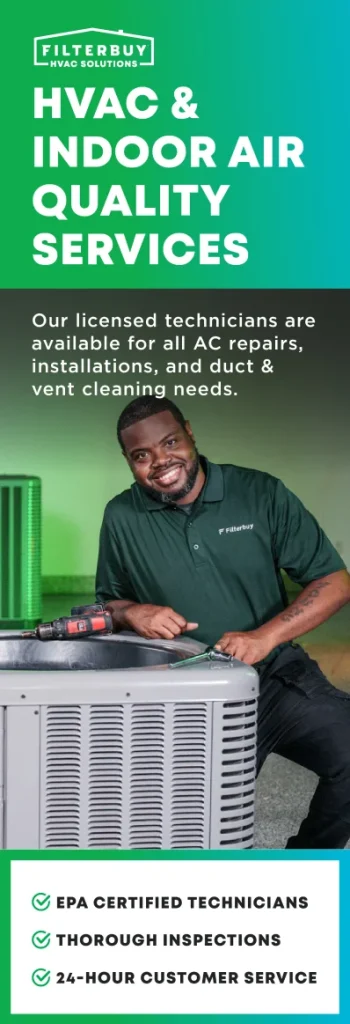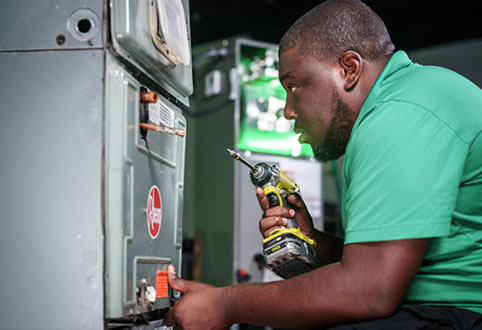How to Tell if an HVAC Contractor Is Reliable
Finding a dependable HVAC contractor can feel risky, but a simple HVAC checklist keeps the process clear. Remember CREWV—Credentials, Reviews, Estimates, Communication, and Verification. If a company meets each point, you can hire with confidence.
Key Takeaways
- Use the CREWV checklist: Credentials, Reviews, Estimates, Communication, and Verification to judge any HVAC contractor.
- Credentials matter: A current state license and recognized industry certifications prove the contractor meets safety and training standards.
- Reviews reveal patterns: Consistent positive feedback—and professional handling of complaints—show a company values customer satisfaction.
- Detailed written estimates protect you from hidden costs and clarify labor, parts, and timelines before work begins.
- Clear, prompt communication and project updates signal respect for your time and budget.
- Always verify licensing and insurance with local regulators; proper coverage shields you from liability.
- Filterbuy HVAC Solutions checks every CREWV box, offers interest-free financing, and keeps your system running with free shipping replacement filters.
1. Credentials: Proof of Skill and Safety
Start by asking for the contractor’s state license number and any industry certifications. A valid license shows the company meets local training and safety rules. Look for certifications such as NATE (North American Technician Excellence) or EPA Section 608 for refrigerant handling. Years in business also matter. A team that has served your community for 10 years or more has a track record you can check.
2. Reviews: What Past Customers Say
Online reviews on Google, Yelp, or the Better Business Bureau reveal real-world performance. A few bad comments happen to every firm, but repeated complaints about missed appointments, surprise fees, or sloppy work are a red flag. Pay close attention to how a company responds to negative posts. A polite, quick reply shows they respect customers even after the bill is paid.
3. Estimates: Everything in Writing
A trustworthy contractor provides a detailed, written estimate. It should list labor, parts, permit fees, and optional upgrades so you know where every dollar goes. Ask about warranties and service guarantees. If a price looks too good to be true or the scope is vague, get a second quote before you sign.
4. Communication: Clear, Prompt, Respectful
Good contractors listen first, then explain options in plain language. They answer calls or emails within a business day and show up when they say they will. During longer projects, they give progress updates so you are never guessing about timelines or costs. If a company dodges questions or pressures you to “decide now,” keep looking.
5. Verification: Licenses, Insurance, and Affiliations
Protect yourself by confirming the license number with your state licensing board. Then request a copy of the contractor’s liability and workers’ insurance certificates. Proper coverage shields you from bills if someone is injured or something is damaged on-site. Membership in trade groups such as ACCA or RSES is another positive clue; these groups require members to follow current codes and best practices.
Other Red Flags to Watch For
- Quotes given only over the phone, without inspecting your system
- Demanding full payment before work begins
- Refusing to provide references or proof of insurance
- Suggesting you “skip the permit” to save money
Any of these signs should send you back to the drawing board.
Questions to Ask Before You Hire
- How long have you worked on systems like mine?
- Will my quote include permits, parts, and labor?
- Who does the work—company employees or subcontractors?
- What is the warranty on labor and major components?
- How do you handle unexpected findings once the job starts?
Clear answers now prevent costly surprises later.
Why Choose Filterbuy HVAC Solutions?
Filterbuy’s technicians check every CREWV box. We hold full state licensing and certifications, maintain A-rated reviews, and give line-by-line estimates before any work starts. Our office provides progress updates, and our 24-hour line means you always reach a live person in an emergency.
Need financing? We offer interest-free plans on approved credit. Need flexibility? Early-morning, evening, and weekend slots fit your schedule. And when the job is done, you can keep your system running clean with Filterbuy’s free-shipping replacement filters, available in MERV 8, 11, and 13.
Ready to work with a contractor you can trust? Call Filterbuy HVAC Solutions today for a free, no-pressure quote and see how easy reliable service can be.
Frequently Asked Questions
How do I choose a reliable HVAC installer?
Start by confirming the contractor’s state license, proof of insurance, and certifications such as NATE. Check online reviews to see how past customers rate punctuality, workmanship, and follow-up. Finally, ask about response times for emergency calls—speed matters when your AC quits on a summer weekend.
What should a good HVAC quote include?
A clear quote lists labor, parts, permit fees, and any optional upgrades. It should spell out warranty terms, projected start and finish dates, and payment schedule. If anything is missing—ask before you sign.
What certifications matter in the HVAC trade?
The most common credentials are NATE (North American Technician Excellence) for overall skill and EPA 608 for safe refrigerant handling. These badges prove the technician’s training meets current industry standards.
How many quotes should I get before hiring?
Three written estimates give you a solid feel for fair pricing and help you spot outliers—bids that are too low or too high without clear reasons.
Why can HVAC labor seem expensive?
Technicians invest time and money in specialized training and tools. Licensed, insured pros also carry overhead such as permits, payroll, and liability coverage—all built into the service rate.
What are the main HVAC system options?
- Central split system: Good for most homes with existing ductwork.
- Ductless mini-split: Ideal for additions, zoned cooling, or houses without ducts.
- Heat pump: Efficient for both heating and cooling in mild to warm climates.
How do I pick the right size HVAC unit?
Ask your contractor for a Manual J load calculation. This method factors in square footage, insulation, windows, and local climate to nail down the exact capacity your home needs.
Will an expensive brand always be more reliable?
Premium brands often run quieter and carry longer warranties, but mid-tier units can perform just as well when installed and maintained correctly. Focus on proper sizing, expert HVAC installation, and regular service.
Where do HVAC techs earn the highest pay?
Income usually tracks climate and demand. States with long, hot summers—Florida, Texas, California—tend to pay more because systems run harder and require more service calls.
What’s the best way to grow an HVAC business?
Deliver consistent quality, ask happy customers for reviews, and offer maintenance plans to keep repeat clients on the calendar. Digital ads and local partnerships can also widen your reach.
How do I check an HVAC contractor’s license and insurance?
Verify the license number with your state’s contractor board and request a current insurance certificate. A trustworthy company provides both without delay.






